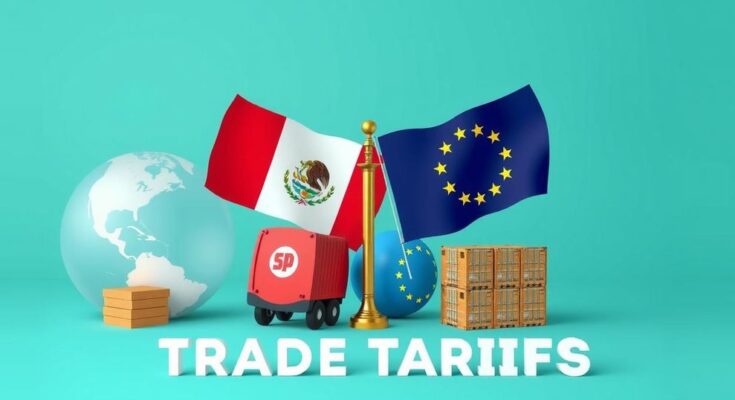Dhruva Jaishankar discussed U.S. tariff priorities, highlighting concerns for India and global implications. Ongoing negotiations aim for an interim agreement; Raisina Dialogue emphasizes constructive global engagement. The Russia-Ukraine conflict presents opportunities for India’s mediatory role. Key issues for the Global South include institutional reform, health, and climate justice amid changing geopolitical currents.
Dhruva Jaishankar, Executive Director of the Observer Research Foundation (ORF), noted that U.S. President Donald Trump’s tariff priorities include Canada, Mexico, China, and the European Union, while India has benefitted from a relative exemption. Jaishankar expressed concern that global reciprocal taxes announced by Trump would adversely affect India along with other nations such as Malaysia and Brazil. He indicated that discussions between India’s Minister of Commerce and the U.S. Trade Representative are ongoing, with hopes for an interim agreement before April 2.
Jaishankar described these tariff measures, stating, “The priorities for Trump on tariffs have been Canada, Mexico, China, European Union to some extent. So far, thankfully, India has been a little exempt.” He emphasized the need for negotiations to stabilize U.S.-India relations and the importance of avoiding retaliatory tariffs. Jaishankar was optimistic about the negotiations ahead, saying, “There have been some attempts even in the last few days for trade negotiations.”
The Raisina Dialogue, which commenced on March 17 in Delhi, is an essential global forum with over 100 sessions and participation from 4,000 delegates. Jaishankar remarked, “It has become an important global forum. We have over 100 sessions, 4,000 delegates, 2,000 from abroad.” He noted the dialogue’s positive and constructive tone, in contrast to other international conferences like the Munich Security Conference, particularly regarding pressing issues such as connectivity, trade, and geopolitical shifts related to the Russia-Ukraine conflict.
On the ongoing Russia-Ukraine conflict, Jaishankar indicated that recent negotiations have led to terms for a ceasefire from Ukraine, leaving the decision now with Russia. He expressed anticipation about forthcoming conversations between President Trump and President Putin, stressing, “The ball is now in Russia’s court.” Jaishankar discussed the potential roles India could play, stating that while other nations like Saudi Arabia have taken the lead in facilitation, India remains open to supporting dialogue between the parties involved.
Jaishankar explained the significance of several interconnected issues facing the Global South, particularly in light of the reciprocal trade tariffs. He highlighted institutional reform, health, energy, and food security as vital areas where U.S. engagement has waned under Trump’s administration. He stated, “These are the three sets of issues, as I see, where there’s some common agenda for the Global South, which advance Indian interests as well.” Jaishankar underscored the need for all nations to collaborate on these challenges moving forward in a changing geopolitical landscape.
In summary, Dhruva Jaishankar emphasized the complexity of U.S. tariff priorities and their potential impact on India. The ongoing negotiations demonstrate a proactive approach to trade relations, particularly with the upcoming Raisina Dialogue addressing global issues. Furthermore, the developments in the Russia-Ukraine conflict illustrate India’s willingness to act as a mediator. The broader context highlights the importance of addressing key challenges facing the Global South amid shifting international dynamics.
Original Source: www.business-standard.com




